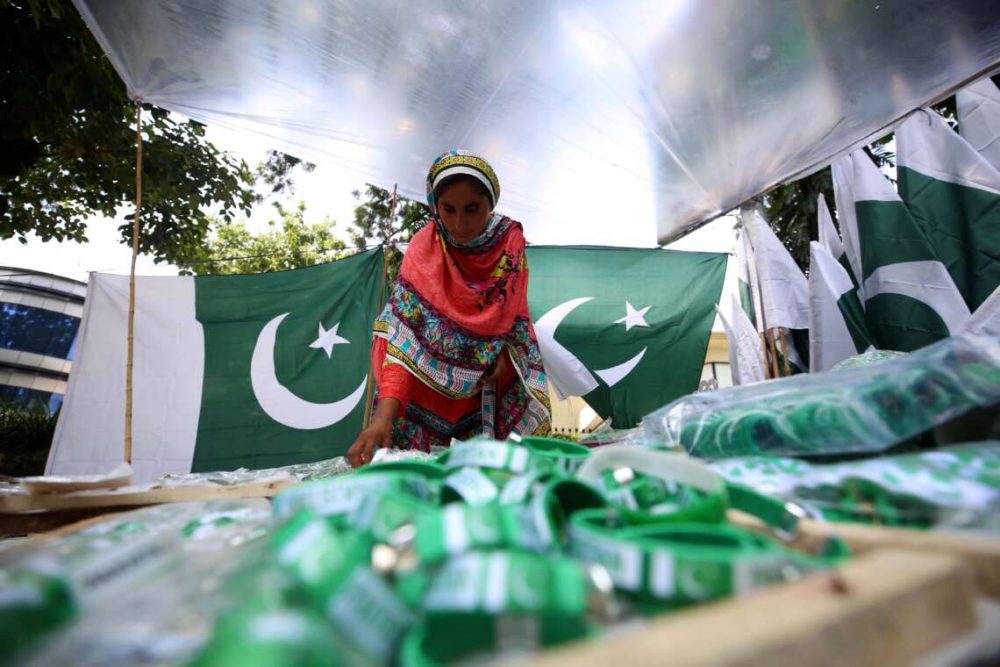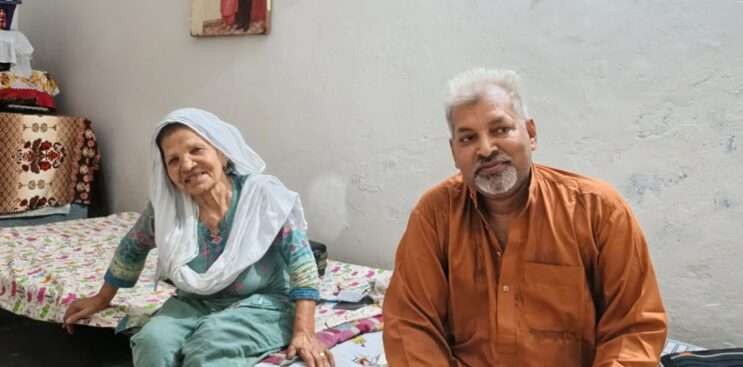Kenya has deployed 217 more police officers to Haiti as part of a multinational force to curb gang violence plaguing the Caribbean nation, Kenya’s interior minister said on Saturday.
According to the minister, Kipchumba Murkomen, the police officers departed from Kenya on Friday.
“The Kenya-led mission has made tremendous progress in reducing gang violence, earning praise across the globe,” Mukomen said as he shared a photo of himself with some of the officers aboard a plane.
Kenya’s “commitment to this historic mission is unwavering,” he said.
Kenya first sent troops to Haiti in June and the total deployment now exceeds 600. Kenya’s President William Ruto has pledged to deploy 1,000 troops as part of the U.N.-backed force in Haiti.
Gang violence has left more than 700,000 Haitians homeless in recent years, with many crowding into makeshift and unsanitary shelters after gunmen razed their homes.
More than 5,600 people were reported killed across Haiti last year, according to the United Nations. The number of killings increased by more than 20% compared with all of 2023, according to the U.N. Human Rights Office.
In addition, more than 2,200 people were reported injured and nearly 1,500 kidnapped, it said.
Kenya steps up measures against monkeypox
Meanwhile, Kenya’s Ministry of Health on Friday confirmed two more cases of monkeypox, raising the total count in the country to 33, as the ministry said it has intensified public health response measures to swiftly detect and contain the spread of the disease.
Mary Muthoni, Principal Secretary in the Ministry of Health, said in a statement issued in Nairobi, the capital of Kenya, that the two cases had been confirmed in the northwestern county of Kericho and Taita Taveta County in the coastal region.
Muthoni said the outbreak has spread across 12 counties, forcing the ministry to scale up efforts to control its spread through enhanced surveillance and robust contact tracing.
“To accelerate the response to the outbreak in the affected counties, the ministry, in collaboration with county governments and partners, has enhanced surveillance through active case search, contact listing, tracing investigation, and symptomatic management of confirmed cases, including offering mental health and psychosocial support to the infected and affected persons,” she said.
Muthoni said 225 contacts have been identified and 216 of them have been monitored for the recommended 21-day period. Since the onset of the outbreak, over 2.9 million travellers have been screened at points of entry.
She said public health campaigns focused on educating the public about monkeypox prevention and control are actively underway.
With schools reopening nationwide, the ministry has raised concerns about the increased risk of monkeypox among children who may experience more severe symptoms due to their developing immune systems, Muthoni said, adding that the education and health ministries have implemented strict health measures in schools to mitigate this risk.
Monkeypox is an infectious disease that can cause a painful rash, enlarged lymph nodes, fever, headache, muscle ache, back pain and low energy. Most people fully recover, but some get very sick.
Caused by the Monkeypox Virus (MPXV), it is an enveloped double-stranded DNA virus of the Orthopoxvirus genus in the Poxviridae family, which includes variola, cowpox, vaccinia and other viruses. There are two distinct clades of the virus: clade I (with subclades Ia and Ib) and clade II (with subclades IIa and IIb).
A global outbreak of clade IIb began in 2022 and continues to this day, including in some African countries. There are also growing outbreaks of clades Ia and Ib affecting the Democratic Republic of the Congo and other countries in Africa.
The natural reservoir of the virus is unknown, but various small mammals such as squirrels and monkeys are susceptible.
Kenya reports surge of tea export volumes
Kenya’s tea export volumes surged 20.8 per cent in the first ten months of 2024, boosted by increased demand in destination markets, the Tea Board of Kenya (TBK) said.
The TBK on Wednesday said export volumes stood at 500.8 million kg, an increase from 414.5 million kg recorded in the same period of 2023.
The East African nation earned 155 billion Kenyan shillings (about $1.19 billion) from exports during the first 10 months, a rise from $1.09 billion in a similar period in 2023, said the TBK in a report released in the Kenyan capital of Nairobi.
“The export earnings were higher on account of higher export volumes and a stable exchange rate,” the TBK said. The Kenyan shilling exchanged at an average of 129 to the US dollar during the period.
With the country earning an average of $199 million per month from tea, earnings in 2024 are expected to surpass the $1.39 billion earned in 2023, according to the TBK.
Meanwhile, tea production also surged 7 per cent in the first 10 months of 2024, boosted by favourable weather conditions. Pakistan, Egypt, the United Arab Emirates, Russia and Sudan remained the main markets that shipped more tea from Kenya during the period.
Kenya is expanding its market, especially in Asia, with the government recently opening a tea trade centre in the Fujian Province of China to facilitate distribution in the country.
Meanwhile, Kenya’s exports in the third quarter of 2024 increased by 5.5 per cent to 284.4 billion Kenyan shillings (about $2.19 billion) compared to the same period in 2023, the country’s national statistics bureau said on Tuesday.
Data from the Kenya National Bureau of Statistics (KNBS) indicated that Africa continued to account for the largest share of total export earnings at 39.6 per cent, despite a decline of 5.2 per cent compared to the same period in 2023.
“The decline was partly on account of reduced exports to Egypt (32.6 per cent), Tanzania (10.4 per cent), Burundi (36.9 per cent) and South Sudan (27.5 per cent),” the KNBS said.
The statistics bureau noted that exports to Asia increased to 79.3 billion Kenyan shillings (about $612.8 million), primarily driven by increased re-exports of kerosene-type jet fuel to the United Arab Emirates and exports of pigeon peas to India.









